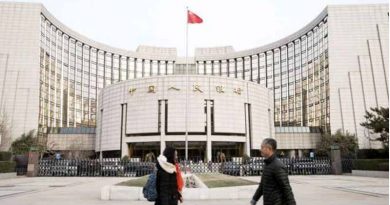Telecoms sector now contributes 16% to Nigeria’s GDP – NCC
According to information provided by the Nigerian Communications Commission (NCC) based on calculations made by the Nigeria Bureau of Statistics (NBS), the telecom sector’s share of the country’s Gross Domestic Product (GDP) climbed dramatically to 16% in the second quarter of 2023.
This was expressed in a keynote speech by Prof. Umar Danbatta, Executive Vice Chairman of the NCC, on Thursday in Lagos at the Association of Telecom Companies of Nigeria (ATCON)-hosted annual Telecom Executives and Regulators Forum (TERF).
According to Danbatta, the telecommunications sector contributed 16% to the national GDP in the second quarter of 2023, breaking the previous record of 14% set in the first quarter of 2023 and surpassing the previously held record of 15% set in the second quarter of 2022.
Danbatta walked the audience of eager telecom executives and other industry stakeholders through the enormous strides being made by the Commission as he spoke on the topic of “Success Factors and Barriers to National Broadband and Digital Economy Aspirations.”
Danbatta, the EVC of NCC, stated that quarterly GDP has greatly increased to achieve its present level of 16% and that this has continued to favourably impact all parts of the economy from an approximate 8% contribution to GDP in 2015 when he joined the organisation.
The industry has expanded rapidly over the past 20 years because to the Commission’s consistent regulatory perfection and operational efficiency, which has had a positive impact on all other economic sectors. Our primary competitive advantage as an industry has been the excellent regulatory framework established by the NCC with the backing of all stakeholders, according to Danbatta.
The EVC noted that while there are obstacles to broadband deployment in the nation, including the right-of-way (RoW) issue, fibre cuts, high capital requirements for deployment, multiple taxes, and challenges, the NCC is navigating regulatory complexities, digital divide and literacy, security concerns, and other issues with firmness and increased collaborations with necessary stakeholders, such as ATCON, to develop measures to address the obstacles
Regarding the RoW dilemma, the EVC stated that now, there are around 46 various taxes aimed at the telecom industry. Some agencies and levels of government, particularly at the state and local levels, impose these fees and levels on telecom providers under a variety of titles.
Danbatta claimed that the difficulty results in additional financial pressures for the nation’s telecom users. In reference to connectivity, Danbatta stated: “Over the years, we have identified some clusters of access gaps all over the country but we have recorded a significant drop in the number of access gaps, as we continue to drive initiatives that boost access to telecommunications services.
According to him, the Commission accomplishes this by encouraging investment and funding, encouraging the development of infrastructure, encouraging digital inclusion and literacy, promoting competition and market liberalisation, encouraging the effective allocation of spectrum, as well as fostering the e-government ecosystem.
“The NCC is confident that we are going to reach 50% broadband penetration threshold by the end of 2023 and by 2025, we would have met and possibly exceeded the 70% broadband penetration target, as contained in the Nigerian National Broadband Plan (NNBP), 2020-2025,” Danbatta said in reference to various ongoing regulatory efforts
The ATCON and its members received special praise from the EVC for being active participants in progress and for consistently collaborating with the Commission in positive ways to address the many issues facing the sector.
A robust digital economy and a nationwide broadband network are not without difficulties, according to the EVC. “However, these difficulties can be overcome with perseverance, inventiveness, and strategic planning.
We can build a future in which every Nigerian has access to the opportunities that the digital world offers by concentrating on the success elements and removing the obstacles,” he continued.
The achievement of the country’s digital objectives, according to Danbatta, goes beyond technology development and also involves changing lives, fostering economic growth, and maintaining a country’s competitiveness on the international stage.
“As we work together to navigate this path, I enjoin all of our stakeholders in the public and private sectors to remain committed to building a brighter and more connected future for our country,” he added.



